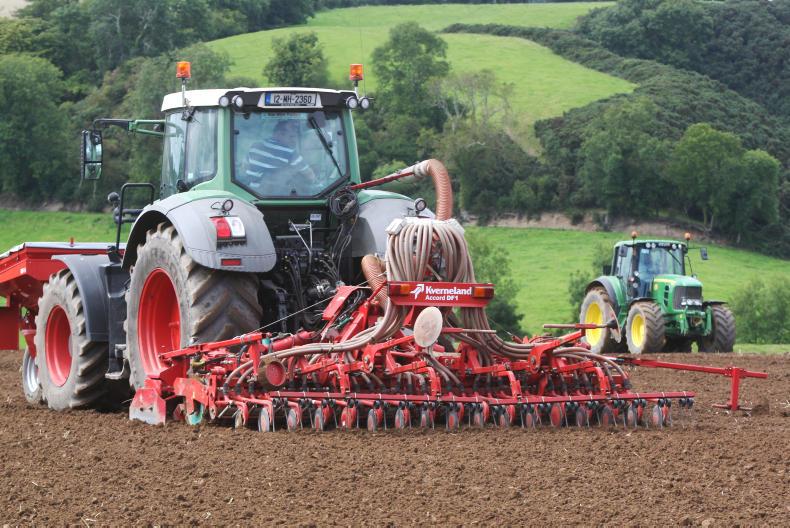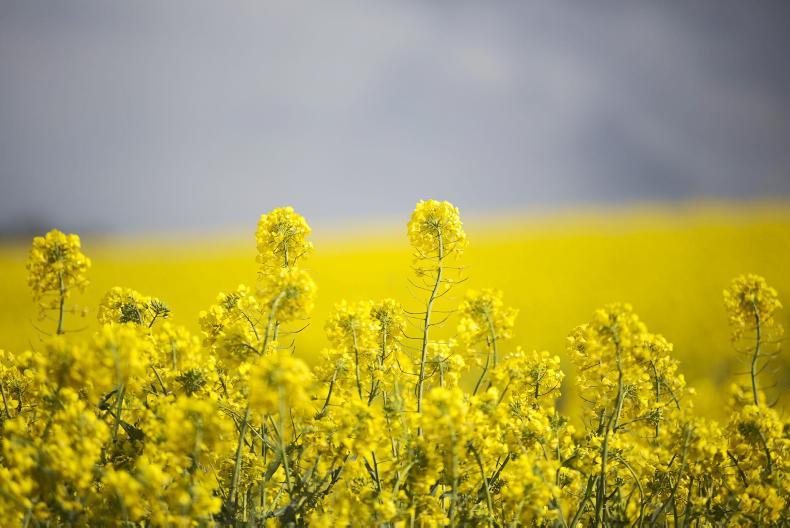In May 2020 France, notified the European Commission of its intention to delist ‘in-vitro random mutagenesis with chemical or physical agents’ to comply with French Council of State’s February 2020 ruling.
This decision will ban Clearfield herbicide-resistant varieties of rapeseed for use in the country, disallowing these varieties of rapeseed and requiring a zero-tolerance for any contamination from these varieties.
Clearfield varieties use a non-GM genetic trait which allows the use of a herbicide to kill brassica weeds, but not damage a Clearfield variety.
That February ruling was based on the European Court of Justice (ECJ) 2018 decision on new breeding techniques (NBTs).
It will negatively affect rapeseed and seed exports from Canada, other EU countries and South America to France.
Impacts on trade
France has notified the commission of its intention to amend its official catalogue of seed. It will remove seven banned Clearfield herbicide -resistant varieties of rapeseed registered on the French official seed catalogue.
Both imported planting seeds and rapeseeds for feed and further processing fall under the ruling and subject to testing.
Rapeseeds and planting seeds for rape are primarily imported from Canada, South America and other EU countries.
The implication is that even if one seed in a shipment were found to contain the prohibited gene, the whole shipment would be rejected and would have to be re-exported or destroyed.
French farmers’ unions are urging growers to exercise caution when purchasing their rapeseed seed for the 2021 crop.
In a recent report, the United States Department of Agriculture (USDA) stated that if France determines additional measures are needed to implement the ECJ decision, US agricultural exports for products developed using NBTs could be negatively affected as well.
Area
In the report, the USDA says that the French decree only names Clearfield rapeseed. Clearfield varieties were planted on around 10,000ha out of a total rapeseed area of 1.1 million hectares in 2020.

Clearfield varieties were planted on around 10,000 hectares in France in 2020
It exempted sunflower varieties that were developed using similar techniques that were widely adopted by French growers.
One-third of the 2020 French sunflower area of 700,000ha is believed to be planted with Clearfield sunflower varieties, the report states. Herbicide-resistant chicory varieties were also not included into the French list.
Timeline
The French Court ordered that this decision be implemented by 7 August 2020. The deadline will be difficult to meet because, prior to passing the final rule, France must:
Complete an EU technical regulation information system (TRIS) consultation.Hold a French public debate.Review the rule though France’s High Council for Biotechnology.
In May 2020 France, notified the European Commission of its intention to delist ‘in-vitro random mutagenesis with chemical or physical agents’ to comply with French Council of State’s February 2020 ruling.
This decision will ban Clearfield herbicide-resistant varieties of rapeseed for use in the country, disallowing these varieties of rapeseed and requiring a zero-tolerance for any contamination from these varieties.
Clearfield varieties use a non-GM genetic trait which allows the use of a herbicide to kill brassica weeds, but not damage a Clearfield variety.
That February ruling was based on the European Court of Justice (ECJ) 2018 decision on new breeding techniques (NBTs).
It will negatively affect rapeseed and seed exports from Canada, other EU countries and South America to France.
Impacts on trade
France has notified the commission of its intention to amend its official catalogue of seed. It will remove seven banned Clearfield herbicide -resistant varieties of rapeseed registered on the French official seed catalogue.
Both imported planting seeds and rapeseeds for feed and further processing fall under the ruling and subject to testing.
Rapeseeds and planting seeds for rape are primarily imported from Canada, South America and other EU countries.
The implication is that even if one seed in a shipment were found to contain the prohibited gene, the whole shipment would be rejected and would have to be re-exported or destroyed.
French farmers’ unions are urging growers to exercise caution when purchasing their rapeseed seed for the 2021 crop.
In a recent report, the United States Department of Agriculture (USDA) stated that if France determines additional measures are needed to implement the ECJ decision, US agricultural exports for products developed using NBTs could be negatively affected as well.
Area
In the report, the USDA says that the French decree only names Clearfield rapeseed. Clearfield varieties were planted on around 10,000ha out of a total rapeseed area of 1.1 million hectares in 2020.

Clearfield varieties were planted on around 10,000 hectares in France in 2020
It exempted sunflower varieties that were developed using similar techniques that were widely adopted by French growers.
One-third of the 2020 French sunflower area of 700,000ha is believed to be planted with Clearfield sunflower varieties, the report states. Herbicide-resistant chicory varieties were also not included into the French list.
Timeline
The French Court ordered that this decision be implemented by 7 August 2020. The deadline will be difficult to meet because, prior to passing the final rule, France must:
Complete an EU technical regulation information system (TRIS) consultation.Hold a French public debate.Review the rule though France’s High Council for Biotechnology. 






 This is a subscriber-only article
This is a subscriber-only article











SHARING OPTIONS: